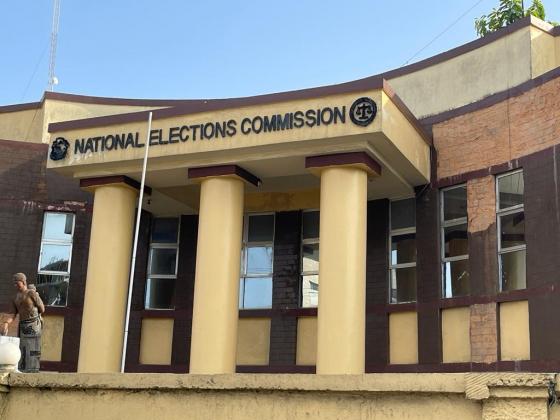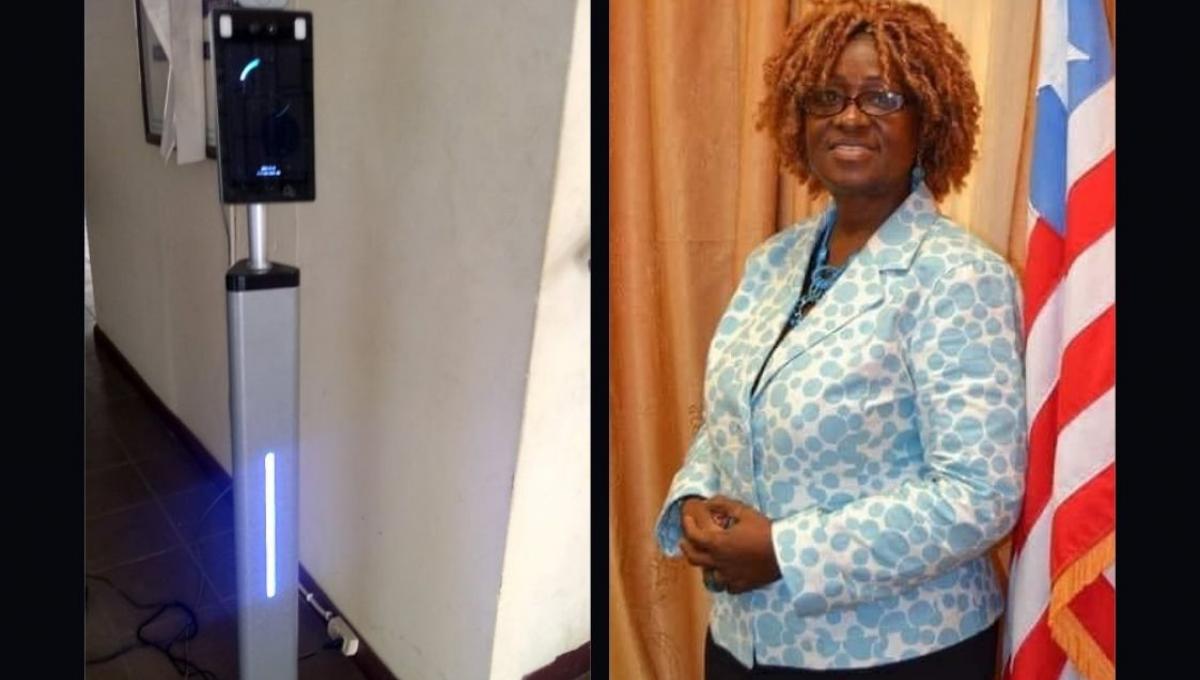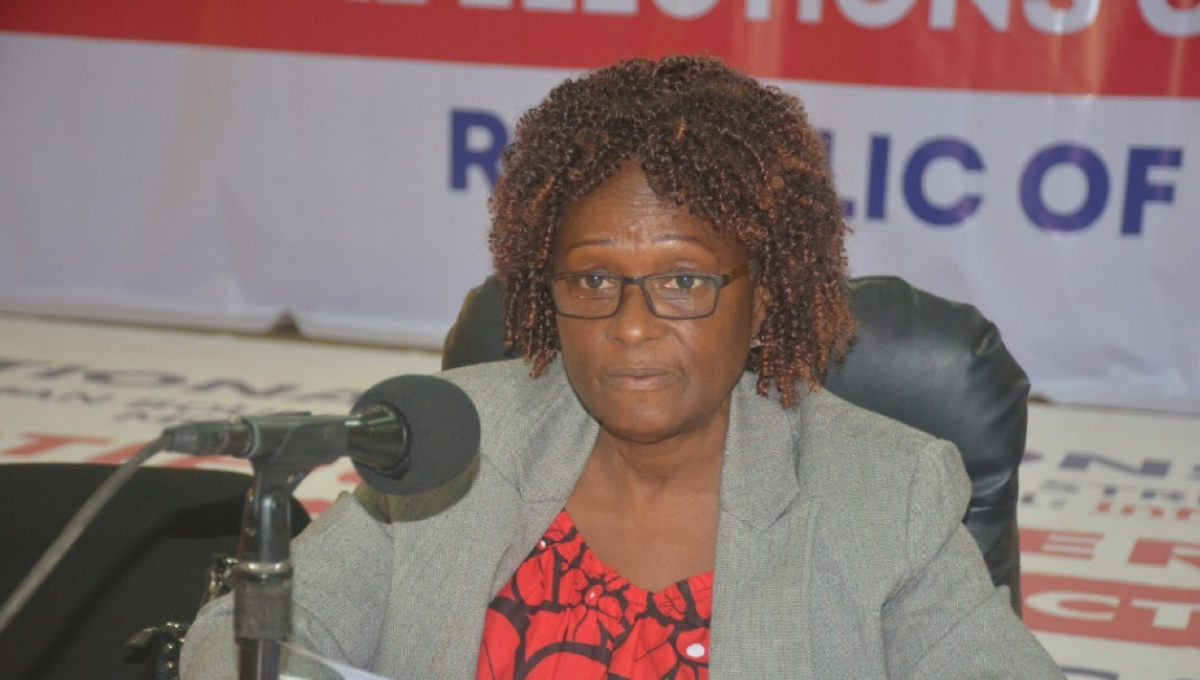NEC’s Procurement Woes Deepen as PPCC Keeps Distance

Although it is not clear as to whether a battle line has been drawn between the National Elections Commission (NEC) and the Public Procurement and Concessions Commission (PPCC) on following due diligence in the business of procurement, the latest development has it that PPCC has distanced itself from any alleged authorization to NEC for the lease of the controversial 20 pieces of thermometers.
“The PPCC states that there was neither contract package nor description for facial recognition and temperature testing machines presented and indicated by the NEC on its Bong, Nimba, Grand Gedeh, and Bomi Counties by-elections procurement plan and accompanying notes,” the PPCC said in its communication recently sent to the Liberia Anti-Corruption Commission (LACC).
PPCC, in its letter, the LACC informed that body of having no role played in granting NEC any authorization to procure any material called thermometer, let alone any advanced version of it as claimed by the Electoral Body.
It can be recalled that on November 15, 2021, the Daily Observer broke news of the electoral body using US$182,320 to rent 20 pieces of a facial recognition device said to be used also for temperature checking; but in no time, the cost of the device raised alarm thereby necessitating an LACC investigation of all the Commissioners at NEC and some senior staffs for probable corruption or misappropriation of public funds.
PPCC said it is unaware of any contract for the rental of facial recognition and temperature checking machines and that the Commission (PPCC) did not approve any such contract.
The PPCC’s communication disclosed that the NEC submitted its procurement plan on August 17, 2021 and it was reviewed and approved on August 27, 2021 but there was nothing mentioned, indicating the procurement of thermometers, when through restricted bidding or in an open bidding process.
In the article published on November 18, 2021 in which the NEC chairperson, Madam Davidetta Browne Lansanah, was at the center of a conflict of interest deal with Tuma Enterprises, a company headed by her brothers, which had a contract with virtually no competitor. NEC executive Director, Anthony Sengbeh and the Commission’s director of procurement, Joseph Kerkulah presented to the Daily Observer a letter of no objection from the PPCC but the details on whether or not thermometers the subject of the no objection letter were not clearly spelled out, thereby creating more doubts.
PPCC has again distanced itself from NEC’s procurement woes, by explaining that the NEC’s procurement plan included four rentals, including vehicle rental or lease (single source), verification equipment (restricted bidding), motorbikes (rental and lease), and conference hall (rental).
A procurement plan is a document prepared by a procuring entity (in this case, NEC), indicating items (goods, works, and services) to be procured, coding with procurement method, timelines for invitation or advertisement, bid opening, evaluation, procurement committee approval and expected delivery date.
Since the news broke out about the facial recognition thermometers procured by the NEC, especially the fact that the organization was leasing each one at the cost of US$9,166, NEC has failed to provide any significant rebuttal. The highest amount on Amazon.com for the highest quality of the equipment is US$1,500 apiece. However, members of the NEC’s Information Technology and Data Center departments insist that the cost per unit was increased due to the integration of custom software, a set of battery banks and other functionalities needed to deploy the thermometers as part of a much more elaborate system.
The PPCC indicated further in its communication that “the procurement processes below US$200,000 are not subject to the PPCC’s prior review and approval before award of contract as the procedures and regulations. However, the PPC Act Part 1 and 27(c) requires a procuring entity to conduct processes in consonance with applicable procedures.”
The public procurement regulatory body listed “invitation of bidders, issuing of bidding documents, conducting of bid opening, conducting due diligence, and evaluating the proposals from bidders,” as key elements in the bidding processes.
PPCC added that there is a need for a procuring entity, as in the case of NEC, to recommend a responsive bidder in line with the predetermined criteria and submit to the Procurement Committee for acceptance or rejection and institute all applicable values and principles during the conduct of these processes.
Meanwhile, calls were placed to NEC authorities, including the Procurement Director, Joseph Kerkulah, the Executive Director Anthony Sengbeh and Davidetta Browne Lansanah, Chairperson of NEC, with queries concerning PPCC’s letter in which it distanced itself (PPCC) from any authorization or recognition of thermometers. Said calls received no response.
A message was sent to the NEC executive director as well as the chairperson in an effort to have them respond but neither of them answered.
For LACC, Cllr. Edward Kla Martin neither confirmed nor denied receipt of PPCC’s letter, but assured that his office is investigating the NEC officials and will report to the public as soon as it concludes its findings.



